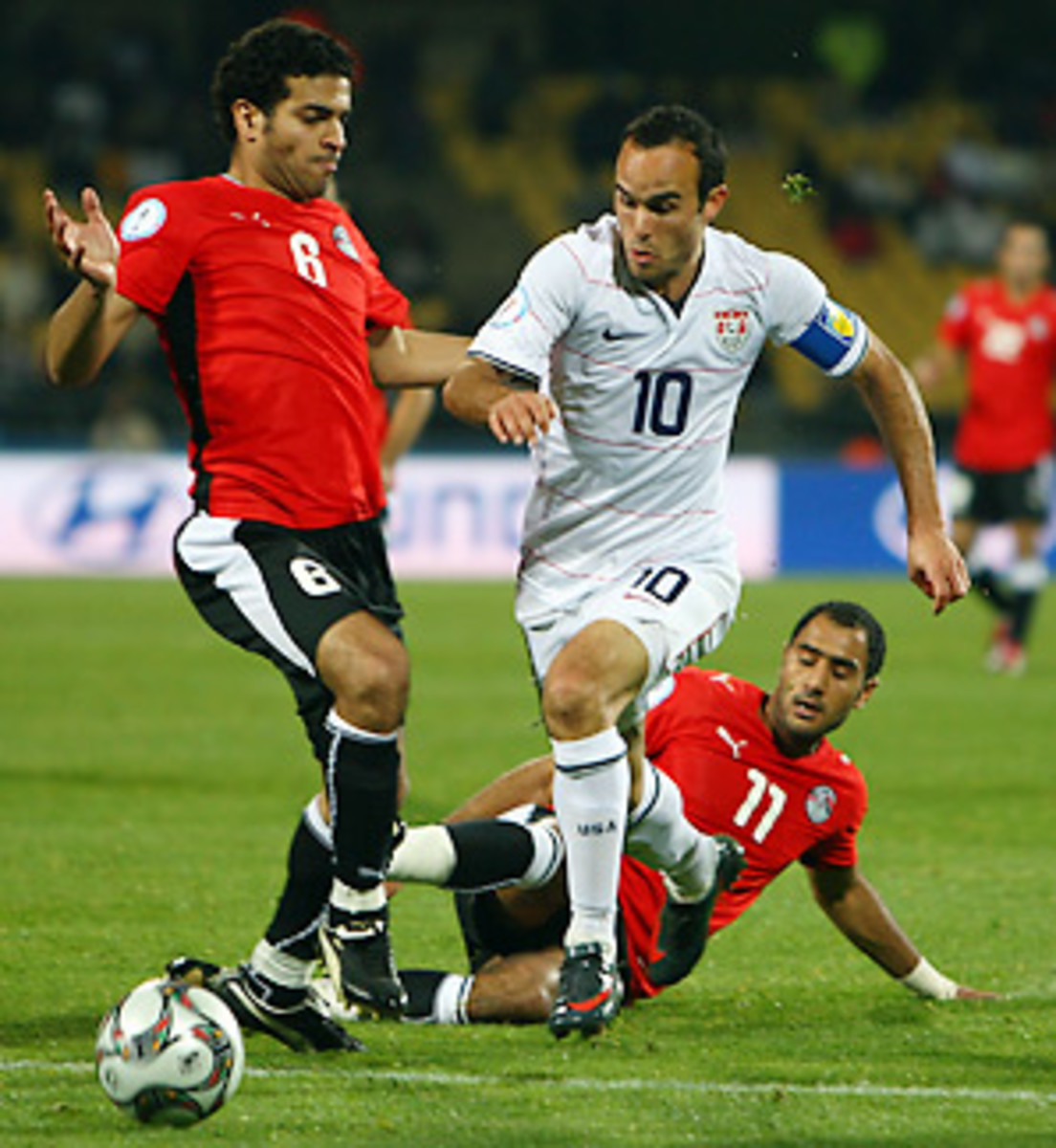U.S. makes most of its second wind
Garib's explanation? We were tired. "The two matches against Brazil and Italy have taken their toll on our players, and it showed in their performance," he said. "We tried to play the same style that we played against Brazil and Italy, and due to the short time for players to heal, we didn't have time between the games to prepare well. This has impacted negatively on the players, with fatigue and lack of concentration."
OK, that seems fair enough. The short turnaround between games and fatigue are certainly worth a mention. But Garib was so adamant that fatigue was the ultimate factor in his team's downfall, he included it in his answer to every question posed of him in the press conference -- every single one. At which point, his comments began to seem dismissive of the U.S. team.
Hey, Mr. Garib, where's the respect? Where's the "Well played, USA. You had more heart and your tactics undid us" comment? Where's the admission that, simply put, his side was beaten by a better team?
After all, the U.S. had battled the same elements. The Yanks also played against Brazil and Italy. In fact, the U.S. had it worse, since it had played 90 of its 180 minutes against those two star-lit squads with only 10 men. But the Yanks still came out and, after a shaky opening few minutes, ran riot over the Confederations Cup's dark-horse favorites.
Some people -- both in Egypt and in the U.S. -- might argue with my assumption that the United States is a better team than Egypt. Heck, I might, having watched the Pharoahs play some gorgeous football at the 2008 African Cup of Nations and then in their first two games here in South Africa.
But gorgeous football doesn't necessarily mean a team is better than the next one. And it certainly doesn't necessarily translate into a result (see: Brazil 4, Egypt 3). And as I've argued before, in the end, all that matters is the result. The result right now is that the U.S. is traveling to Bloemfontein to face Spain in the semifinals on Wednesday; Egypt and Italy are going home.
Does that mean I also consider the U.S. better than Italy? No. My simple logic only goes so far. But perhaps it should be noted that the Azzurri lost to Brazil by the same score line as the U.S., and they had all 11 men for the full 90.
The Italians, probably more than anyone, will appreciate the last-gasp, fight-just-enough way the U.S. got out of the group. Sneaking into the knockout round of tournaments is almost an art form for the Azzurri. They need the drama. Is it luck that sees them through? Can't be. When something happens again and again, luck ceases to be involved.
Now, the U.S. doesn't have the track record Italy has, obviously, but on Sunday night after the Egypt game, U.S. coach Bob Bradley cagily refused to let anyone chalk his team's success up to merely luck.
"Without a doubt, we were focused on the three games, knowing it was a tough group," he said. "We knew in the last game we had to go after it in order to give us a chance."
In short, the U.S.' game plan coming into the Confed Cup was never reliant on wins against Italy or Brazil. Points against either would have been great. But the Egypt game was crucial. The U.S.' best chance to escape this hellish group (sidebar: Has there ever been a more deathly group in international tournament?) was to get three points against the Pharoahs.
Now with the plan coming together so nicely, how much should the Miracle in Rustenburg still be chalked up to luck? OK, probably a lot. After all, who would've expected Italy to lose to Brazil 3-0? And, seriously, who could've predicted the Egyptians would be so darn fatigued?
Oh, wait, Bradley actually predicted that last one. "When you put so much into the first two games against teams like Brazil and Italy, the team who could get the edge would have a chance," he said. "We knew that fatigue would be a factor if we could get the lead."
So, in other words, fatigue was a major factor. The difference was, the Americans overcame theirs; Egypt didn't. Too bad Garib couldn't acknowledge that.





